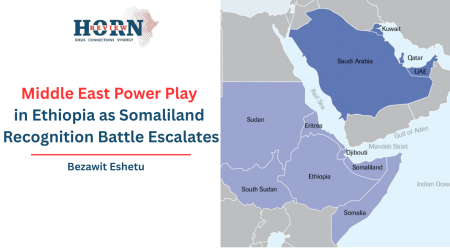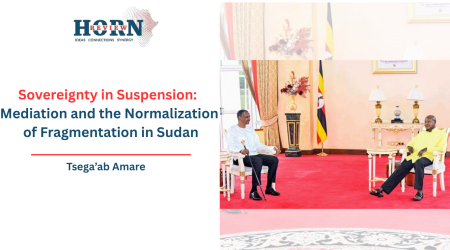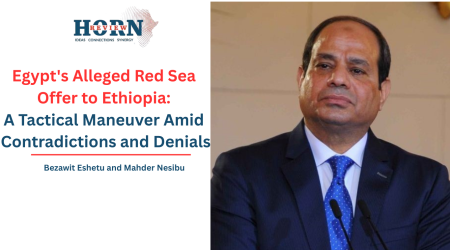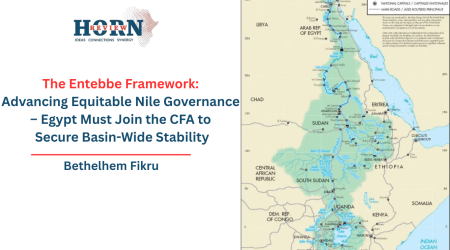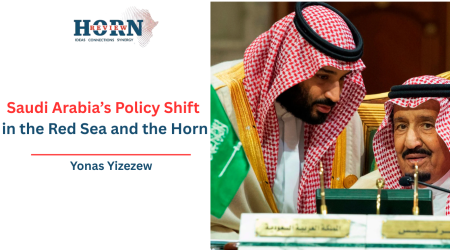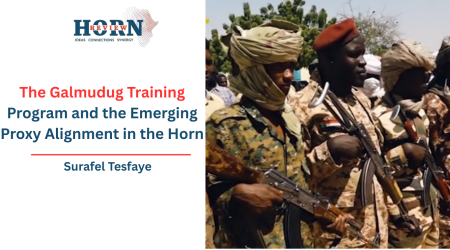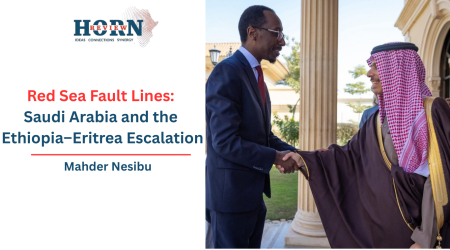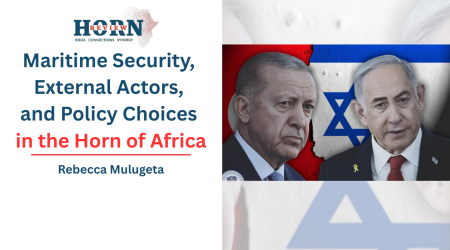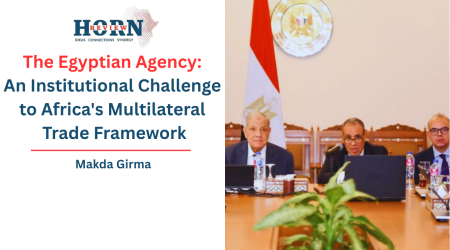
28
Jan
Shifting Dynamics in the Horn of Africa: Somali-Ethiopian Rapprochement Challenges Egypt’s Influence and the Ambitions of Isaias and Sisi.
The Horn of Africa has long been marked by geopolitical competition and complex rivalries. The recent diplomatic thaw between Somalia and Ethiopia represents a significant shift in regional dynamics, challenging Egypt’s influence and undermining the ambitions of key figures such as Eritrea’s Isaias Afwerki and Egypt’s Abdel Fattah el-Sisi.
Historically, Ethiopia, as a regional power, and Somalia have been locked in conflict, particularly over border disputes like the Ogaden region. Egypt, seeking to maintain its dominance in the region, has often capitalized on these tensions to counterbalance Ethiopia’s power. The Nile River and its resources have been central to Egypt’s interests, with the construction of Ethiopia’s Grand Ethiopian Renaissance Dam (GERD) threatening Egypt’s water security and exacerbating tensions.
Eritrea, under Isaias Afwerki, has played a divisive role in the region, exploiting rivalries to secure its survival. Eritrea’s relationships with Ethiopia and Somalia have been fraught, with Afwerki at times collaborating with Egypt to counterbalance Ethiopian influence. However, the recent reconciliation between Somalia and Ethiopia threatens to marginalize Eritrea’s disruptive role in the Horn, offering an opportunity for Ethiopia and Somalia to solidify their partnership and forge a more cooperative regional future.
The rapprochement between Somalia and Ethiopia, led by Somali President Hassan Sheikh Mohamud and Ethiopian Prime Minister Abiy Ahmed, represents a key turning point. Their efforts to deepen cooperation are focused on economic integration and regional stability, diminishing Egypt’s ability to use Somali-Ethiopian discord to its advantage. As a result, Egypt’s traditional strategies to manipulate the region’s politics are becoming less effective.
This evolving relationship between Somalia and Ethiopia is also diminishing Eritrea’s influence. With Ethiopia and Somalia strengthening their ties, Eritrea’s role as a spoiler in regional politics is rapidly fading. This shift also impacts Egypt, which has historically relied on its alliance with Eritrea to counterbalance Ethiopia’s ambitions.
Egypt’s long-standing strategy in the Horn, driven by its concerns over the Nile and the GERD, is now facing significant challenges. The Somali-Ethiopian reconciliation undermines Egypt’s efforts to rally support against Ethiopia’s control of the Nile. Moreover, Egypt’s alliances with leaders like Isaias Afwerki, intended to serve as a counterweight to Ethiopia, are increasingly out of step with the region’s growing focus on economic cooperation and political stability. This shift in regional priorities suggests a diminishing role for Egypt in the Horn of Africa.
The changing dynamics in the Horn of Africa offer the potential for greater regional cooperation, though significant challenges remain. Both Ethiopia and Somalia must address internal instability, terrorism, and economic vulnerabilities to maintain their partnership. Eritrea’s reaction to its growing isolation, along with Egypt’s recalibration of its regional strategy, will play a crucial role in determining the future stability of the region.
For the global community, particularly powers like the United States, China, and Gulf states, the evolving situation calls for a reassessment of engagement in the Horn of Africa. Supporting initiatives that promote economic development, conflict resolution, and regional cooperation can help solidify positive changes and weaken the influence of divisive actors, ultimately fostering a more stable and integrated Horn of Africa.

